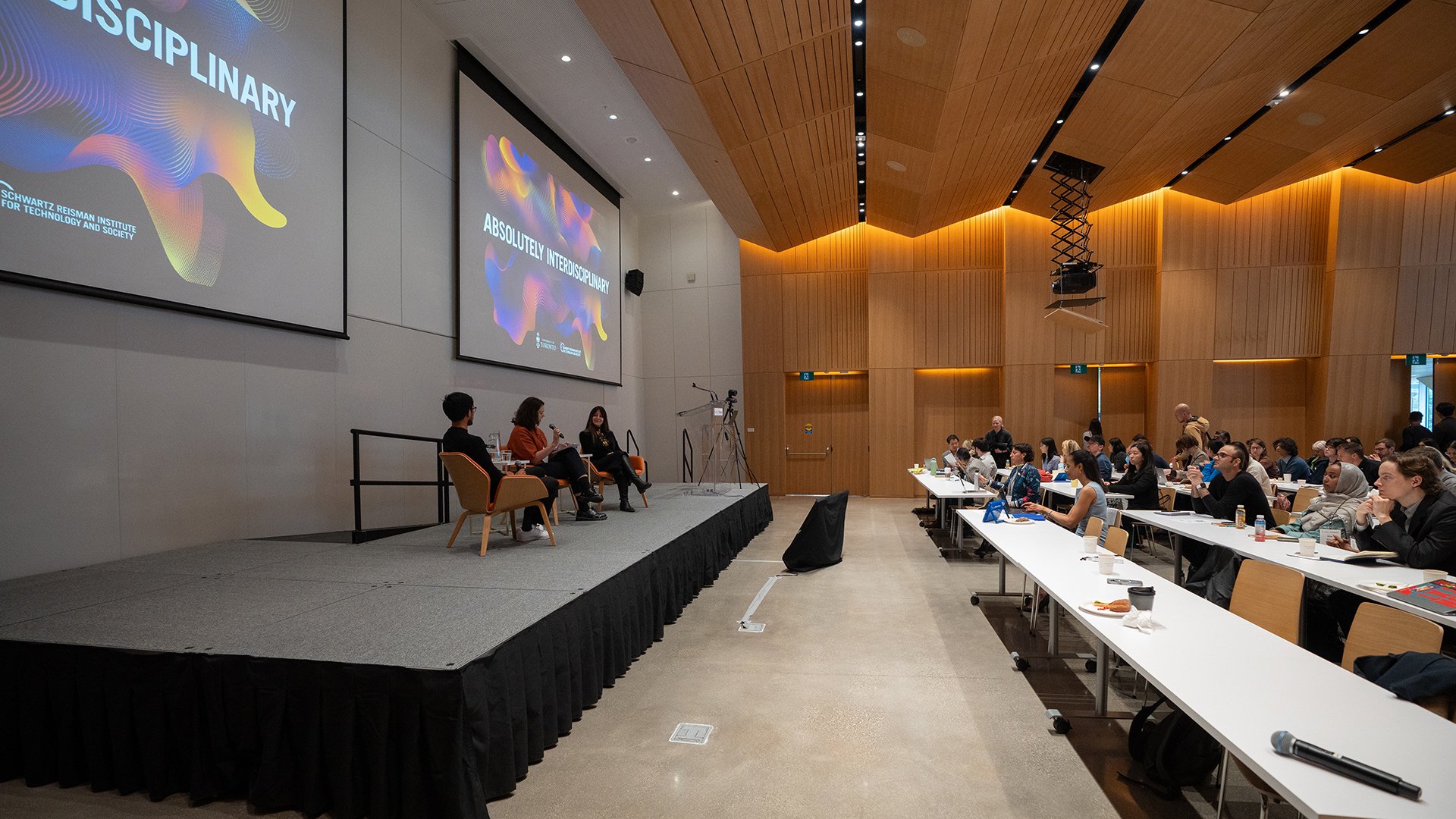SRI Director Gillian Hadfield named Canada CIFAR AI Chair
SRI Director and Chair Gillian Hadfield has been named a Canada CIFAR AI Chair, joining a growing cohort of leaders in the country’s robust artificial intelligence research ecosystem. The chairs will help advance Canadian leadership in priority areas under the Pan-Canadian Artificial Intelligence Strategy at CIFAR. Hadfield is the first social scientist affiliated with the Vector Institute to be named to the program.
University of Toronto professor Gillian Hadfield, director of the Schwartz Reisman Institute for Technology & Society, has been named a Canada CIFAR AI Chair in recognition of her global leadership in artificial intelligence (AI) research.
CIFAR is a Canadian-based global research organization that convenes extraordinary minds to address the most important questions facing science and humanity. The announcement unveiled eight new Canada CIFAR AI Chairs, including U of T’s Anatole von Lilienfeld, of the Department of Chemistry. Seven of the eight new chairs, including Hadfield and von Lillienfeld, are affiliated with the Vector Institute for Artificial Intelligence, launched in 2017 through a partnership between U of T, federal and provincial governments and industry. The eighth chair has been appointed to Edmonton’s Amii.
Hadfield, a professor in U of T’s Faculty of Law and Rotman School of Management, becomes the first Vector-affiliated social scientist to be named a CIFAR AI chair.
“It’s both inspiring and humbling to be joining the growing cohort of exceptional people that comprise Canada’s CIFAR AI Chairs,” Hadfield said. “I’m most looking forward to deepening interdisciplinary collaborations that I believe can contribute to meeting the challenge of building AI systems that promote human well-being in responsible and socially beneficial ways.”
The eight newly-appointed Canada CIFAR AI Chairs are: Wenhu Chen (University of Waterloo), Jeff Clune (University of British Columbia), Gillian Hadfield (University of Toronto), Xi He (University of Waterloo), Linglong Kong (University of Alberta), Parvin Mousavi (Queen’s University), Vered Shwartz (University of British Columbia), and Antatole von Lilienfeld (University of Toronto). Image: CIFAR.
The CIFAR AI Chairs program is a cornerstone of the Pan-Canadian Artificial Intelligence Strategy, which aims to recruit the world's top AI researchers to Canada and retain existing talent. It provides university-affiliated faculty with long-term, dedicated funding to support cutting-edge research programs and help train the next generation of AI leaders.
This latest round of appointments will advance Canadian research in fields of inquiry identified through the second phase of the strategy as priority areas: AI for health; AI for energy and the environment; the fundamental science of AI; and the responsible use of AI, CIFAR said in a statement.
“The new Canada CIFAR AI Chairs joining Amii and the Vector Institute are an extraordinarily talented group of researchers who will continue to educate and inspire the next generation of AI leaders and advance research in exciting and important areas,” said Elissa Strome, CIFAR’s executive director, Pan-Canadian AI Strategy.
Leah Cowen, U of T’s vice-president, research and innovation, and strategic initiatives, said the appointments – alongside the announcement a few days earlier of the Eric and Wendy Schmidt AI in Science Postdoctoral Fellowship, a program of Schmidt Futures, illustrate the importance of the thriving AI ecosystem in Toronto and across Canada.
“Canada led the early development of deep learning and the Pan-Canadian AI Strategy is building on the legacy of that pioneering work,” Cowen said. “Twenty-three researchers at U of T now hold AI chairs through this important program, and their transformative research – along with the work of all the CIFAR AI chairs, across the country – is advancing not only the development, but the responsible use of artificial intelligence and its applications to build a better, stronger future.
François-Philippe Champagne, minister of innovation, science and industry, said in a statement that AI is one of the greatest technological transformations and economic opportunities of our time.
“Congratulations to our eight new chairholders – you join other world-leading researchers who are driving efforts to build a stronger economy, develop cleaner energy, improve public health, and increase innovation in Canada,” he said.
With files from U of T News.









